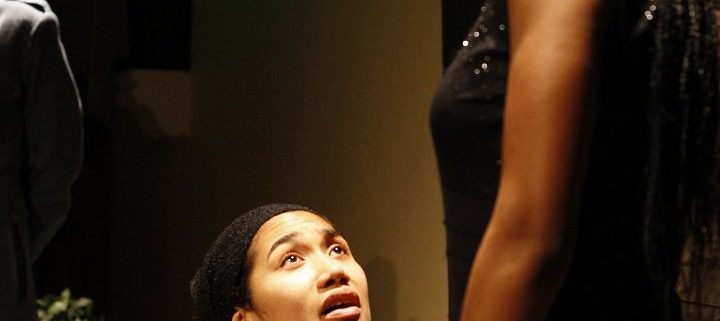Warden’s Thoughts 6
Last week was the senior drama play, the Antigone. It was low key in some ways, because the cast was not huge, the set was very basic and the costumes were not flashy. However the production was outstanding, with some very good performances…and one or two really powerful ones. Theatre at its best has the power to challenge and no one could have left without being stirred, even if they did not have a nice warm glow. Greek tragedy doesn’t do that…it’s modern man who has invented the happy ending.
As a classics teacher myself I love the fact that a play written 2500 years ago is still so relevant and topical. The Greek tragedians, in this case Sophocles, used to take familiar stories and themes and give them a twist. The audience, familiar with the traditional telling of the story, would understand the author’s twist far better than we can. The underlying theme of all tragedy was always the belief that there are certain standards of right and wrong, eternal values dear to the gods…and we break them at our peril. Although everything we do is dictated by fate it does not absolve us from personal responsibility for our actions and there is always some flaw in the character of the tragic figure that causes the tragedy to come to pass. Put simply, it is a variation on the theme, ‘pride comes before a fall.’
In the Antigone Creon breaks a law of the gods in his desire to be seen as the strong ruler, while his niece Antigone defies him. After stubbornly refusing to see reason, and hurling abuse at all those around him, Creon finally backs down and rushes off to make amends for his actions. The audience breathe a sigh of relief in the expectation that the pending crises have been averted. However he is too late and before the play ends three of his family have killed themselves. Creon remains alive, broken by his own pride, shattered by his own ‘hubris’ (breaking the law of the gods) and in total despair. In good Greek style we leave the theatre challenged to look at ourselves and ensure that our own pride does not bring us into conflict with those eternal values of mercy and humility.
I can’t help feeling that the message of this 2500 year old play could not be more relevant than it is now and that is why those ancient plays are still put on year after year and have never been surpassed…they will always be in fashion because they deal with eternal conflicts in human nature. Leaders and rulers are still committing hubris, still setting themselves up as being above the law and the consequences are always tragic, for themselves and those around them, including the innocent.
In assembly on Monday I spoke to the school about leadership and how I could see so many potential leaders among them, particularly if they remember that leadership is about service and not about throwing their weight around. It is possible to be a leader even in the primary year, because leadership is about standing up for what is right even if it is unpopular. It is also about bringing the best out of the people around you, just as the captain of a team makes those around him look good, but doesn’t draw attention to himself or herself. I emphasised that the class bully or the noisiest boy in the playground is not the best leader, but sadly we live in a world where the class bully and the noisiest boy has just been elected as the most powerful man in the world. Sophocles would have been sharpening his quill. Hubris is inevitable.
I only ever directed one play, back in 2001. It was hard work and very stressful and I vowed never to do it again. And which play was it? The Antigone.
Mark Boobbyer
[photo: Anthony Brouwer]




